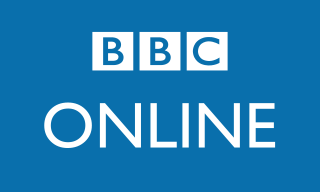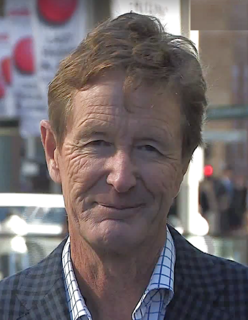Related Research Articles
The Australian Broadcasting Corporation (ABC) is Australia's national broadcaster, founded in 1929. It is principally funded by the direct grants from the Australian government but is expressly independent of government and partisan politics. The ABC plays a leading role in journalistic independence and is fundamental in the history of broadcasting in Australia.

The Special Broadcasting Service (SBS) is a hybrid-funded Australian public service broadcaster. About 80 per cent of funding for the company is derived from the Australian Government. SBS operates five TV channels and seven radio networks.

The Australian and its Saturday edition, the Weekend Australian, is a broadsheet newspaper published by News Corp Australia since 14 July 1964. As the only Australian daily newspaper distributed nationally, its readership as of September 2019 of both print and online editions was 2,394,000. Its editorial line has been described over time as centre-right to right wing. It is owned by News Corp Australia.
Foxtel^ is an Australian pay television company—operating in cable television, direct broadcast satellite television, and IPTV streaming services. It was formed in April 2018, superseding an earlier company from 1995. The name 'FOXTEL' is a blend of News Corporation's 'Fox' Broadcasting and 'Tel' from Telstra. The name signifies a joint venture established between News Corporation and Telstra, with News Corp being the 65% and Telstra the 35% shareholders respectively.

BBC Online, formerly known as BBCi, is the BBC's online service. It is a large network of websites including such high-profile sites as BBC News and Sport, the on-demand video and radio services co-branded BBC iPlayer, the children's sites CBBC and CBeebies, and learning services such as Bitesize. The BBC has had an online presence supporting its TV and radio programmes and web-only initiatives since April 1994, but did not launch officially until 28 April 1997, following government approval to fund it by TV licence fee revenue as a service in its own right. Throughout its history, the online plans of the BBC have been subject to competition and complaint from its commercial rivals, which has resulted in various public consultations and government reviews to investigate their claims that its large presence and public funding distorts the UK market.

Australia has a modern and diverse media industry spanning traditional and digital formats, and catering mostly to its predominantly English-speaking population. In 2018 the Press Freedom Index ranked Australia 19th out of 180 countries, although by 2020 Australia's ranking had somewhat declined to 26th out of 180 countries.

ABC Australia is an Australian pay television channel, launched in 1993 and operated by the Australian Broadcasting Corporation. The channel broadcasts a mix of programming, including lifestyle, drama, sports, English-language learning programs, children's programming and news and current affairs to viewers across East Asia, Central Asia, South Asia, Southeast Asia and Pacific Islands.
Helen Razer is a Melbourne-born and Canberra-raised radio presenter and writer. She is the author of four non-fiction books and a columnist with the Australian version of The Big Issue, Melbourne newspaper The Age and contributor to the monthly magazine Cherrie and weekly newspaper The Saturday Paper.

Paul James Barry is an English-born, Australian-based journalist, newsreader and television presenter, who has won many awards for his investigative reporting. He previously worked for the BBC on numerous programs, before emigrating to Australia.

Foreign Correspondent is a weekly Australian documentary series and current affairs program screened on ABC, Tuesdays at 8:00 pm (AEDT), Wednesdays at 11.30am as well as on ABC News on Saturdays at 6.30pm. It is also available on iView or on the Foreign Correspondent website. ABC News also repeats the program on Thursdays at 2.30pm if parliament is in recess. The program premiered at 7:30 pm on Saturday 14 March 1992. Its aim is to provide information about the happenings in other countries either on the light side of life or during crises.
The Australian Broadcasting Corporation has evolved from its origins as a licensing scheme administered by the Postmaster-General's Department into a content provider in radio, television and new media.

ABC, formerly known as The ABC National Television Service or ABC-TV from 1956 until 2008, and as ABC1 from 2008 until 2014, is a national public television network in Australia. Launched on 5 November 1956 it is the responsibility of the ABC's television division, and is available nationally. The ABC's headquarters is in Ultimo, an inner-city suburb of Sydney, New South Wales.
ABC Television is the national television network of the Australian Broadcasting Corporation launched in 1956. As a public broadcaster, the ABC provides four non-commercial channels within Australia, and ABC Australia, a advertiser-supported satellite channel partially funded by the Department of Foreign Affairs and Trade. ABC is one of five main free-to-air networks in Australia.

ABC Radio and Regional Content is the division of the Australian Broadcasting Corporation responsible for radio output and regional content.
ABC Digital Network Division, formerly ABC Innovation, is a division of the Australian Broadcasting Corporation. ABC Innovation was formed in early 2007 to develop digital products and services across the ABC. This division took over many of the services previously managed by the New Media and Digital Services division, including ABC Online.
ABC iview is a video on demand and catch up TV service run by the Australian Broadcasting Corporation. Currently iview video content can only be viewed by users in Australia. Now iview attracts around 50 million plays monthly and accounts for around half of the total time streamed by Australian TV video services.

TV5 Network Inc., commonly known as TV5, is a Filipino media company based in Mandaluyong. It is owned by MediaQuest Holdings, an investee company of Philippine telecommunications giant PLDT, through its Beneficial Trust Fund, and headed by business tycoon Manuel V. Pangilinan.
The history of broadcasting in Australia has been shaped for over a century by the problem of communication across long distances, coupled with a strong base in a wealthy society with a deep taste for aural communications in a silent landscape. Australia developed its own system, through its own engineers, manufacturers, retailers, newspapers, entertainment services, and news agencies. The government set up the first radio system, and business interests marginalized the hobbyists and amateurs. The Labor Party was especially interested in radio because it allowed them to bypass the newspapers, which were mostly controlled by the opposition. Both parties agreed on the need for a national system, and in 1932 set up the Australian Broadcasting Commission, as a government agency that was largely separate from political interference.

Inquirer Holdings Incorporated is a mass media conglomerate based in Makati City, Philippines with the Philippine Daily Inquirer as its flagship brand. The company is majority-owned by Pinnacle Printers Corporation, the holding investment arm of the Rufino-Prieto matriarch.
Live streaming world news refers to live videos streams of world television news which are provided via streaming television or via streaming media by various television networks and television news outlets, from various countries. These are provided through Smart TV, or else through the networks' own websites, or also possibly via internet television, especially YouTube, or via video on demand services, subscription video on demand websites such as e.g. Hulu, mobile apps, or digital media players that are designed to play streaming television, such as e.g. the Roku media player.
References
- ↑ Gaven Morris, ABC
- ↑ "Address to National Press Club 10 September 2008" (PDF). Archived from the original (PDF) on 12 October 2009. Retrieved 26 September 2008.
- 1 2 3 "About the ABC - The 90s". Australian Broadcasting Corporation. Archived from the original on 6 December 2012. Retrieved 1 October 2007.
- ↑ "About the ABC - The 2000s". Australian Broadcasting Corporation. Archived from the original on 9 December 2012. Retrieved 4 October 2007.
- ↑ Andrew Dodd (8 September 2008), New ABC Mobile service to include advertising, Crikey.com.au, archived from the original on 11 September 2008
- ↑ Media Watch (15 September 2008), ABC Designs for the future, ABC Online
- ↑ "Why has the ABC Homepage changed?". ABC Help. Retrieved 3 December 2019.